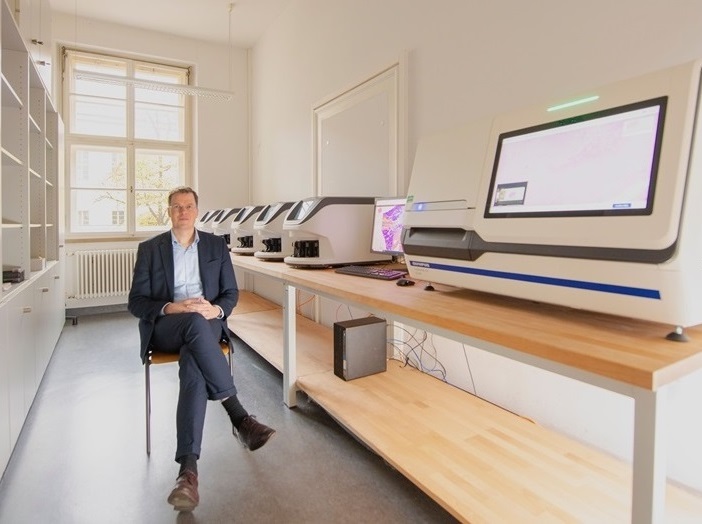AI Tool Uses Imaging Data to Detect Less Frequent GI Diseases
Posted on 05 Nov 2024
Artificial intelligence (AI) is already being utilized in various medical fields, demonstrating significant potential in aiding doctors in diagnosing diseases through imaging data. However, training AI models requires large datasets, which are typically abundant for common diseases. The real challenge lies in accurately detecting rarer diseases, which many current AI models tend to overlook or misclassify. Researchers have now created a new AI tool designed to utilize imaging data to identify less common gastrointestinal tract diseases effectively.
Developed by scientists at Ludwig Maximilian University of Munich (Munich, Germany) and their collaborators, this innovative model only requires training data from frequently observed conditions to reliably detect rarer diseases. This advancement has the potential to enhance diagnostic accuracy and alleviate the workloads of pathologists in the future. As reported in the New England Journal of Medicine AI (NEJM AI), the new technique is founded on anomaly detection. The model learns to identify and highlight deviations from the precise characterization of normal tissues and findings from common diseases, without the need for specific training on these less frequent cases. The researchers utilized a dataset of 17 million histological images from 5,423 cases for training and evaluation.

In their research, the team gathered two extensive datasets of microscopic images from gastrointestinal biopsy tissue sections, along with their corresponding diagnoses. In these datasets, the ten most common findings—including normal observations and prevalent diseases such as chronic gastritis—constituted approximately 90% of cases, while the remaining 10% encompassed 56 different disease entities, including various cancers. Additionally, the AI model employs heatmaps to visually indicate the location of anomalies within the tissue section. By distinguishing normal findings and common diseases while detecting anomalies, the AI model is poised to offer crucial support to healthcare professionals. Although the identified diseases still require validation by pathologists, this AI tool can significantly reduce diagnostic time, as it enables automatic diagnosis of normal findings and a portion of diseases.
“We compared various technical approaches and our best model detected with a high degree of reliability a broad range of rarer pathologies of the stomach and colon, including rare primary or metastasizing cancers. To our knowledge, no other published AI tool is capable of doing this,” said Professor Frederick Klauschen, Director of the Institute of Pathology at LMU.











 (3) (1).png)


